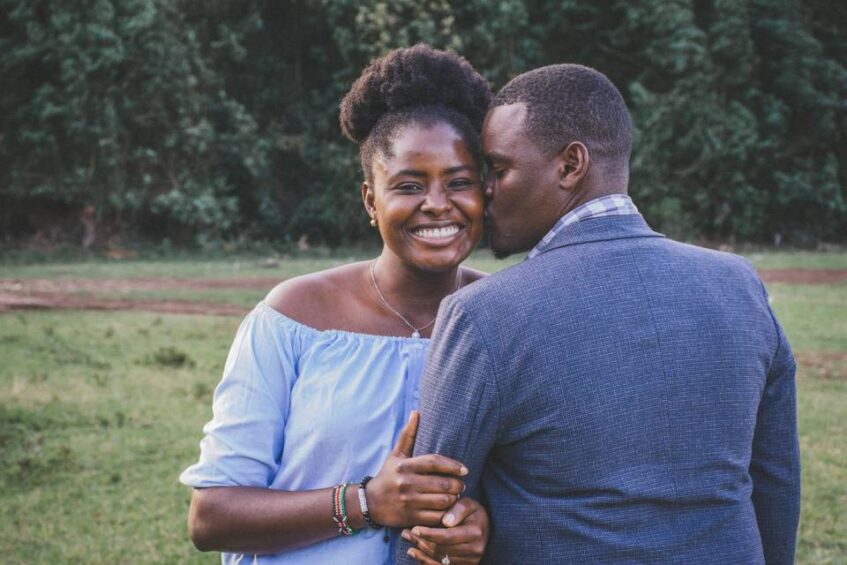As you enter the world of adulthood, you hope to meet the right person, fall in love, and begin planning a future together. But how long should you date before getting married in your 20s?
The answer isn’t a simple one, because different couples have different experiences and backgrounds. Each individual’s opinion will vary depending on their values, culture, life goals, etc., but there are some general guidelines that many people use when determining when (or if) they should get married in their twenties. It is ultimately up to each couple to decide when they feel ready to commit to marriage.
Benefits of Dating in Your 20s

As you enter your 20s, you may feel excited about starting life experiences. Dating can be one of those experiences that bring excitement and joy to life. It can let you explore your youth and enjoy life. It can even be a good idea to meet people online if dating in person is really not to your liking. Nowadays, there are plenty of excellent dating sites in Australia where you can easily find like-minded people and even fall in love. When considering marriage, it is important to understand the benefits of dating in your 20s before making any long-term commitments.
The primary benefit is gaining relationship experience. Meeting new people and learning how to function with them in different situations will give insight into which type of partner would make a good match for marriage. From conversations over coffee to long-term commitments, you will have the opportunity to explore different personalities and relationship dynamics.
Another benefit of dating in your 20s is developing a personal identity before committing to someone else’s. Before deciding who you want to spend your life with, it is important that you become comfortable with yourself as an individual and make necessary changes so that you are emotionally and socially ready for a serious commitment. By taking this time to analyze personal goals as well as what type of partner it takes for compatibility, you can increase the odds of a successful life partnership.
In addition, taking time for yourself during this time period allows for greater confidence when considering life plans such as marriage or having children. This involves financial stability which may require more education or a more substantial career track in order to have the funds needed for starting a family or investing in joint assets such as a house or car. Taking part in activities with friends can also provide peace of mind by building great friendships before entering into committed relationships which may impact existing relationships either positively or negatively.
Factors to Consider Before Deciding to Get Married

It’s important to make sure that you’re both on the same page about the importance of the commitment and for both parties to make sure their expectations for a successful marriage are in alignment.
One of the most crucial aspects of entering into a happy and fulfilling marriage is understanding each other’s goals and values, as well as determining if these are compatible with one another. Couples should feel free to discuss any subject openly and honestly, including religious beliefs, family traditions, parenting goals, communication styles, finances, and career aspirations.
Meeting each other’s families is also an integral part of getting to know one another better and visiting together can be beneficial as it gives insight into how both families celebrate occasions like holidays or weddings. Doing things together, like household chores or taking trips is also beneficial in building a stronger relationship bond.
In addition to having timely conversations about the future you envisage together, couples should consider taking time apart when needed in order to refocus on themselves and focus on personal development plans. Keeping contact at levels comfortable for each person is also important as it allows each person space to work through issues or rest without feeling smothered by the other person’s presence. Focusing on life skills such as time management while dating can help keep relationships flowing positively when tensions arise due to busy and hectic schedules which can bog down relationships over time if not managed correctly.

Taking a longer dating period allows couples more time for thoughtful conversations about tough topics that arise during married life such as managing an illness or financial debt. Overall waiting will allow both persons more options for addressing issues down the line proactively because they better understand their partner‘s approaches to problem-solving before getting hitched.
Average Length of Time Dating Before Marriage
Data suggests that couples who have dated for longer have a better chance at a successful marriage. The average length of time dating before marriage in your 20s is two to three years. This may be more or less depending on how long you and your partner date before getting engaged.
Benefits of Waiting to Get Married

Waiting to get married in your twenties can provide some important benefits for a lasting marriage, including:
- Establishing Financial Stability: Marriage isn’t always just about love – finding financial stability together can help support a strong and successful marriage. Waiting until your late twenties or thirties gives you more time to find gainful employment, build up a good credit score, and work on avoiding investment mistakes.
- Building Relationship Skills: By spending more time in your early twenties with different partners, you can gain insight into what matters most to you in relationships (or what doesn’t), which will inform future relationship decisions. Additionally, having various romantic relationships helps build communication and negotiation skills that are essential in long-term partnership commitments.
- Having Time For Yourself: Many people who wait until their mid-to-late twenties before getting married have the opportunity to develop a strong sense of self by exploring passions and hobbies. This sense of autonomy will serve as a strong foundation for any future relationship commitments. Additionally, research studies have indicated that couples who wait until their late twenties are more likely to be satisfied in their marriages than those who marry earlier due to this sense of personal fulfillment developed during those years.
Conclusion
In summary, there is no magic number when it comes to dating before marriage, and the length of time you should date before getting married will depend on several factors such as age, career ambitions, and general life outlook. Ultimately, it’s important for individuals to move at their own pace and make sure that they are confident and comfortable with the decision to marry.
Nonetheless, talking about marriage plans is a good sign that you can have a successful relationship. While there’s no foolproof timeline for achieving a healthy relationship status with your partner in your 20s, having an open mind and exploring potential options can help you find the right timeline for yourself.

